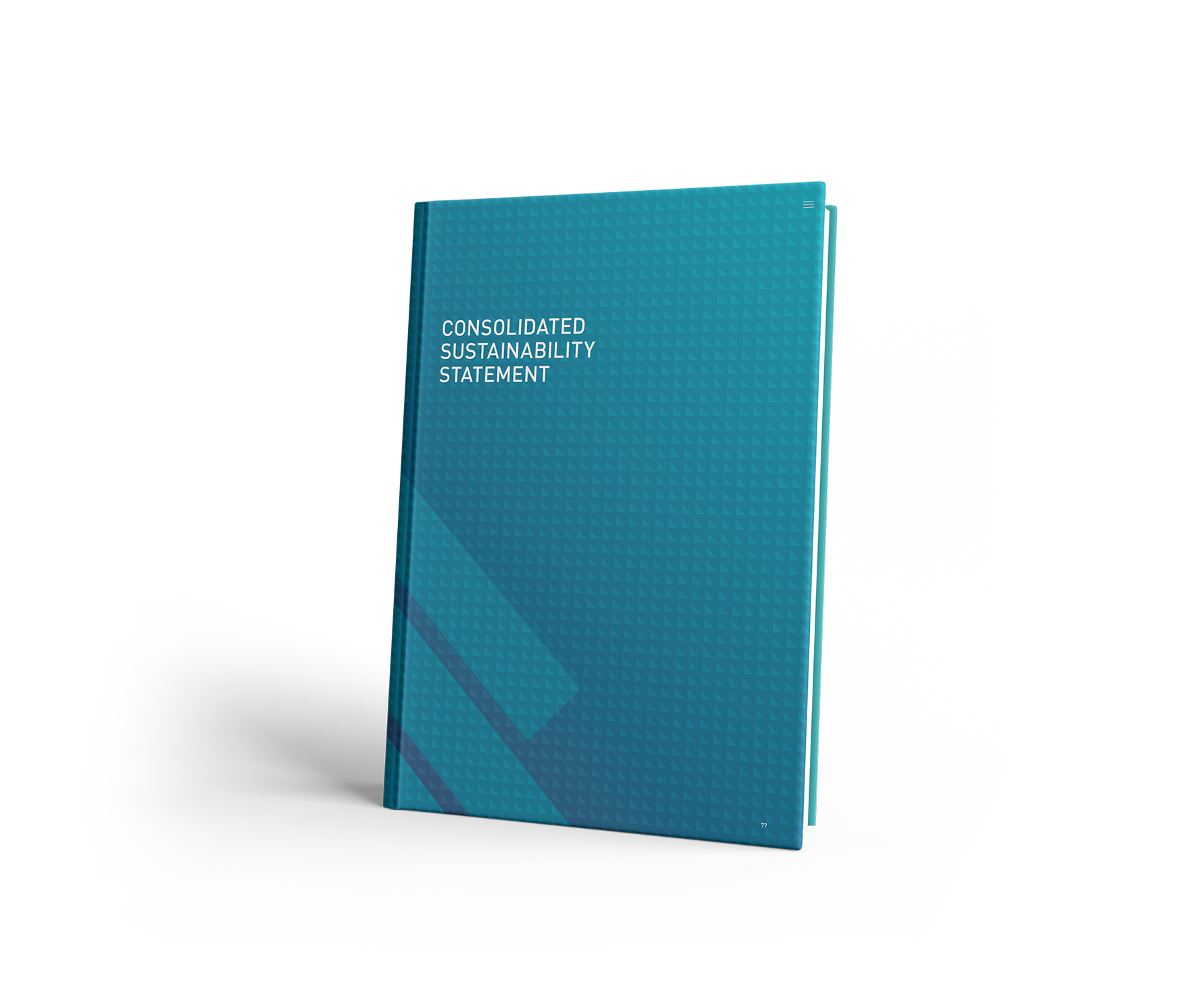Sustainability Plan
The Sustainability Plan is the tool used to share the Group’s future trajectory with its stakeholders: it represents an expression of the ambitions of the Recordati group and the commitments it wishes to prioritise in order to promote sustainable and responsible growth.
Growth and achievement of challenging business and sustainability goals are not incompatible: on the contrary, Recordati is convinced that responsible actions and the generation of shared value contribute to the long-term success of the Company.
Improving people’s health and quality of life is the basis of our mission: it is part of our DNA. Recordati’s People have always given their utmost every day to pursue this goal.
As emphasised by the World Health Organization (WHO), health is not merely the absence of disease or infirmity, but a state of complete physical, mental and social well-being. To improve health, it is therefore necessary to intervene on a number of determining factors, such as the social, physical and economic conditions under which people are born, live and work, including healthcare systems. In this context, in addition to institutions and governments, pharmaceutical companies must also develop strategies for the improvement of the healthcare system, in terms of availability, accessibility and quality of healthcare structures and the goods and services provided.
We are living in a rapidly changing world that often raises concerns about sustainability for future generations. The current scenario in which we live has led us to reflect deeply on the relationship between humanity and nature and on the importance of an overall balance: the well-being and health of people and the health of the planet are closely connected. We cannot be healthy in an unhealthy environment and with no health there is no wealth and no social equity.
With this systemic approach and in accordance with the 2030 Agenda for Sustainable Development priorities, we wish to contribute to supporting global development, promoting human well-being and protecting the environment.

Patient Care

People Care

Environmental Protection
Our ambition
Improving human health is the cornerstone
of our purpose, but we
are aware that the health
and well-being of present
and future generations
and the health of our
planet are closely
interlinked.
With this in mind, we want
to take conscious action
by working to preserve
natural resources
and biodiversity and
contribute to the fight
against climate change
by minimising our
environmental impact.

Responsible Sourcing

Ethics and Integrity
Our ambition Integrity is our founding value, and we lead by example.
The principles of honesty and transparency towards our Shareholders
and Stakeholders guide our daily actions.
The Sustainability Plan, defined in accordance with the materiality analysis, also highlights the contribution to the achievement of 10 of the 17 Sustainable Development Goals (SDGs) of the 2030 Agenda, the common goals signed by UN member states that outline a path of collaboration and responsibility to confront today’s complex challenges.










The objectives of the CEO’s Group Short-Term Incentive (STI) Plan include the key social and environmental targets defined in the Sustainability Plan. Furthermore, responsibility for the achievement of the goals included in the Sustainability Plan is assigned to the representatives of the various departments involved, who have the resources, tools and know-how required for their implementation.
Below are the objectives of the Group’s Sustainability Plan. For more details, please refer to the Consolidated Sustainability Statement.

Business ethics, integrity and anti-corruption
- Updating of the Group Code of Ethics and start of dissemination of the new Code amongst Group employees in 2025, reaching at least 90% of Group employees trained by 2026.
Privacy
- At least 90% of Group employees trained on the Global Privacy Policy (2025).


Access to medicine and healthcare, research and development
Recordati believes that every single patient should have access to the best possible treatment.
In the field of rare diseases, the Group is committed to:
- Continuing with Patient Assistance Program (PAP), Co-Pay Assistance Program (CAP) or similar programs aimed at providing assistance to patients who are eligible to receive financial support for products (2025).
- Continuing to work closely with rare-disease communities (including doctors, healthcare professionals, patients groups and families) to increase awareness, facilitate improved diagnosis and expand availability of treatments for people with rare diseases (2025).
- Continuing to expand rare disease and orphan drugs innovation pipeline and R&D of new therapies (2025). Main activities:
- Isturisa US label extension for the treatment of Cushing syndrome
- Pasireotide Phase 2 trial in Post Bariatric Hypoglycemia (PBH)
- Dinutuximab beta for the treatment of high-risk relapsed/ refractory neuroblastoma in the US
- Dinutuximab beta for the treatment of Ewing sarcoma
- MAAPLIV for the treatment of MSUD patients in EU
In the context of the Specialty & Primary Care Division, the Group is committed to:
- Continuing to invest in our plant in Tunisia to be able to continue providing high-quality and affordable products servicing a broad range of therapeutic areas including low- and middle-income Countries (Tunisia, Sub-Saharan Africa) (2025).
- Continuing to organise health caravans in Tunisia’s underserved regions to improve access to essential medical care and screening (2025).
Product quality and safety
Continuing to guarantee the highest product quality and safety standards throughout the product life cycle to ensure patient safety, which is the fundamental priority in all of Recordati’s operations. In terms of specific projects, Recordati is working on the further digitalization of our quality processes, with the following aims:
- Completion of the roll-out of a digital management system for Quality events in 2025-2026 after the successful introduction of the digital management system for Standard Operating Procedures in 2024.
- Implementation of an electronic Laboratory Information Management System, used in Quality Control laboratories of the sites of the Group for the integrated management of analytical product characteristics.




Diversity and equal opportunities
- Increase the percentage of women in Top and Senior Manager positions to 38% by 2028 (base year: 31% in 2023). (1)
- D&I training: at least 90% of Group employees trained in D&I (Group D&I Policy or other D&I topics) (2025).
- Signing of EU Diversity Charters in the main countries where the Group operates (extension to Belgium and Netherlands) (2025).
- D&I Metrics: implement an Inclusion Index as a part of the second People Engagement Survey to measure the perception of inclusion at Recordati amongst all our employees (2025).
Engagement
- Continue to seek employee feedback: launch the second People Engagement Survey to all employees (2025).
Talent attraction and development
- Continue to support Recordati’s global learning culture, developing our people through our international e-learning platform available to all employees (2025).
- Nurturing growth aspirations of personnel through individual development plans: by 2025 reaching at least 70% of employees with identified professional growth goals through an individual development plan (IDP). (2024 base year: 45.8%).
Health and Safety
- Obtaining ISO 45001 certification for Group Plants covering about 80% of plant employees by 2030 (calculated based on plant employee data for 2023).
In 2025, preliminary Gap Analysis for ISO 45001 certification is planned for the Milan plant.
- Launch of the EHS Engagement & Leadership programme to further strengthen health and safety culture.
This is planned for launch in 2025 in Italy and in 2027 at all other Group plants.
Work-life integration
- Mapping of remote working practices across countries and definition of guiding principles across the organization (2025).
Human Rights and working conditions
- Distribution of the Human Rights Policy to all Group employees and commitment to maintaining the highest standards in terms of human rights and working conditions (2025).
Support for local communities
- Continue to support for communities in areas where the Group operates through donations (monetary and/or product donations) and other initiatives (including employee volunteer activities) (2025).
1. All initiatives aimed at achieving this target will be implemented in full compliance with applicable laws and regulations.





Fight against climate change
- Increase of renewable energy installed power capacity to 11,000 kWp by 2026 (386 kWp in 2022). (Target: 800 kWp in 2024; 5,600 kWp in 2025; 11,000 kWp in 2026).
In 2024, the installation of solar panels was completed in Türkiye, reaching installed power of approximately 860 kWp, in addition to systems already installed in 2022 in Ireland and Spain. By 2026, the Group aims to install further new systems at plants in Italy (Campoverde) and Tunisia, as well as expanding the system in Spain, reaching installed power of 11,000 kWp.
- Reduce Scopes 1 and 2 CO2eq emissions by 20% by 2030, using 2022 as a baseline.
- Obtaining ISO 50001 certification for various Group plants accounting for at least 90% of energy consumption by 2029 (base year for energy consumption data: 2023).
Obtaining ISO 50001 certification for the Tunisian Plant (covering around 13% of energy consumption by all Group Plants) in 2025.
All environmental aspects (water, waste, pollution)
- Obtaining ISO 14001 certification for various Group plants accounting for at least 90% of the waste produced by 2027 (base year for waste production data: 2023).
The target for 2025 is to reach 100% of API chemical plants holding ISO 14001 certification.
Responsible waste management and circular economy initiatives
- Continue with the analysis of possible packaging solutions with lower environmental impact (2025-2027).
- Continue with the analysis of possible new initiatives for the recovery and reuse of chemical raw materials used in production processes (2025-2027).




Management of relationships with suppliers and promotion of a responsible supply chain
- Continue to expand the monitoring of suppliers on ESG aspects through assessments (desk audits) by an independent third party.
- Carry out 150 sustainability audits by 2026, conducting 50 ESG audits during the year (2024-2026).
- The activities to engage with suppliers who achieved low scores during the previous year’s assessment process continued, low scores during the previous year’s assessment process continued, to promote and raise awareness on ESG topics (2025).
- Supplier Code of Conduct formalization and dissemination to all strategic suppliers (launch of distribution of the Code to new suppliers in 2025, reaching all strategic suppliers by 2027).

For more information, please refer to the Annual Report 2024 (including the Consolidated Sustainability Statement)